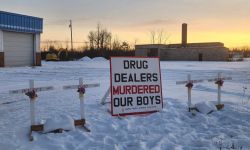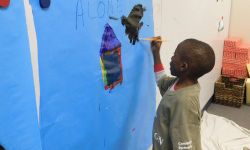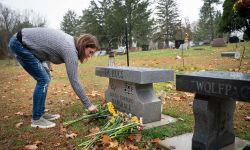Lifesaving Narcan for drug overdoses approved for over the counter sale
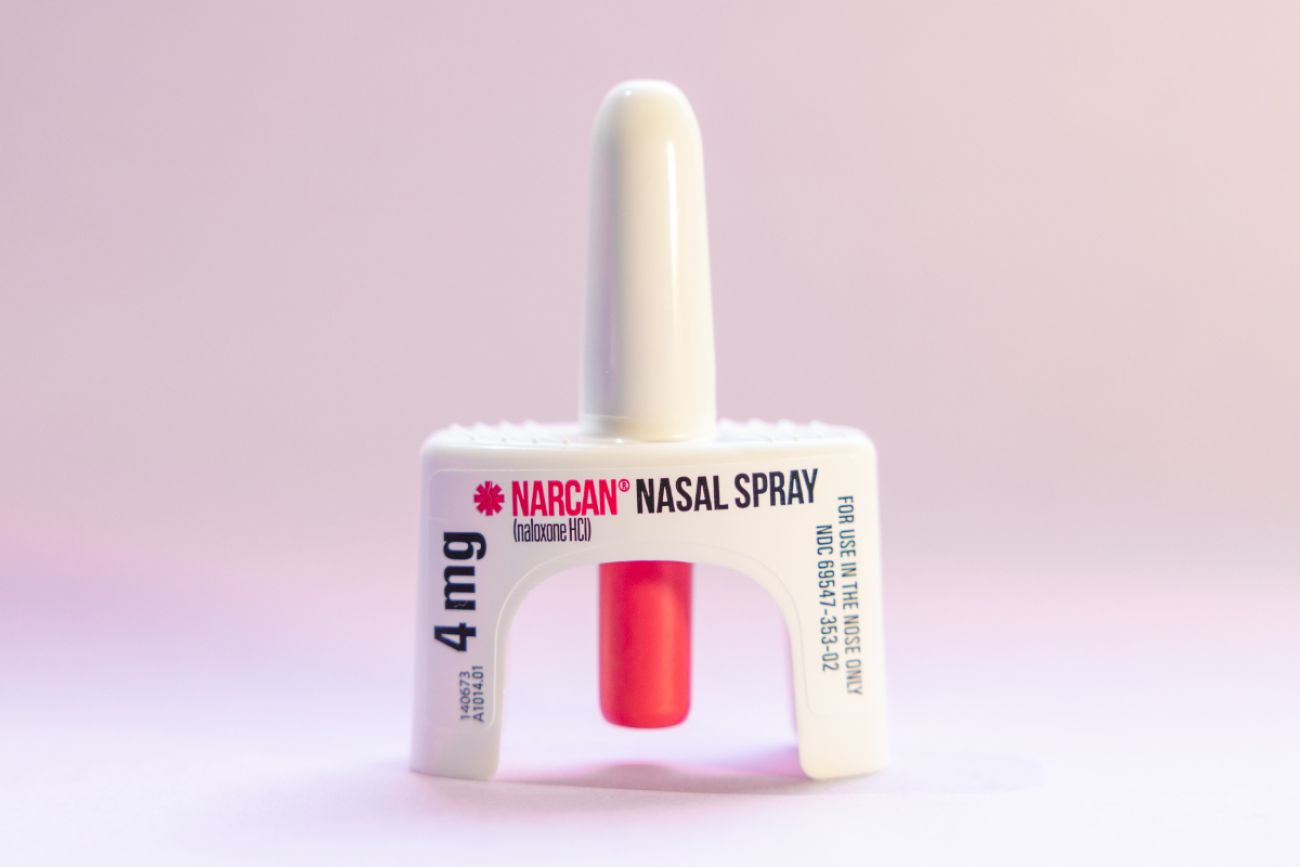
- Michiganders have been able to get both spray and injectable Narcan in pharmacies and recovery programs since 2017.
- What they may not have known was there was a standing behind-the-scenes prescription order.
- Now, a federal policy change allows others — gas stations and grocery stories — to sell nasal Narcan, because there will now be no need for a prescription.
The life-saving, opioid-reversing drug Narcan may soon be available at your corner gas station, grocery store or online in addition to pharmacies.
On Wednesday, the U.S. Food and Drug Administration approved
Narcan — formally known as naloxone hydrochloride — for use without a prescription.
The move should make the 4-milligram nasal spray doses more widely available at convenient locations. But just as importantly, the approval could help reduce the stigma associated with its use, several doctors and substance abuse experts told Bridge Michigan.
Many Michigan pharmacies have carried naloxone since 2017 under a standing order by the state’s chief medical executive, said Farah Jalloul, state emergency preparedness coordinator at the Michigan Pharmacists Association.
Related Stories:
- ‘Abortion pill’ under legal scrutiny; what it means in Michigan.
Michigan health care reimagined using dirt, worms and fresh veggies
To consumers, it may appear that naloxone has been over-the-counter since they’ve not had to get a doctor to write a prescription. That’s because, much like a flu shot, there’s a blanket prescription behind naloxone, signed by the state’s chief medical executive, currently Dr. Natasha Bagdasarian.
Insurance covers the cost for most doses, Jalloul said.
But Falloul and others are concerned that, without a prescription, the drug may no longer be covered by insurance and its cost will place it out of reach for some Michiganders.
A University of Michigan survey of Michigan pharmacies last year found the average out-of-pocket cost of Narcan was $127.77.
In its announcement Wednesday, the FDA acknowledged it will take months for costs to settle. In the meantime, naloxone remains available by prescription at approved Michigan pharmacies.
“Narcan is a life saver, it really is,” said Dr. Mark Hamed, a family physician and director of the emergency and hospitalist departments at McKenzie Health System in Michigan’s Thumb region. “I just hope it will be more accessible now, because it will be affordable.”
Standard treatment
Naloxone is the standard treatment for opioid overdoses, known for pulling back people from the brink of death when seconds count. It reverses the effects of an opioid overdose by attaching to the brain’s opioid receptors, thereby reversing or at least blocking the effects of other opioids.
That can, for example, restore normal breathing that other drugs have stopped or slowed.
It “absolutely” saves countless lives, said Amanda Tarantowski, a substance use disorder treatment manager who oversees substance abuse programs in seven Western Michigan counties.
Counselors and other addiction staff have for years handed out Narcan kits to their clients. Since 2020, the Michigan Department of Health and Human Services has increased the free kits it distributes each year, giving out more than 469,000 kits in that period to libraries, treatment providers, community organizations, schools, faith-based institutions, and even privately-owned businesses, spokesperson Lynn Sutfin said in an email.
But the FDA decision will make it easier for community members to have Narcan on hand as well because the kits may now be placed at convenient shopping sites.
While health departments and recovery programs often give out Narcan as an injection, the nasal spray formulation — the version now available at pharmacies — is less daunting for loved ones, Tarantowski told Bridge.
Less Stigma? ‘Like a Defibrillator’
Drug overdoses continue to be a major U.S. health concern. Deaths are mostly driven by synthetic opioids like illicit fentanyl, often added to other drugs, such as heroin, cocaine, and other street drugs, according to the FDA and the U.S. Centers for Disease Control and Prevention.
In a 12-month period ending Oct. 31, 2022, there were 101,750 reported fatal overdoses in the nation. In 2021, the most recent full year for which data is available, 3,096 people died from drug overdoses in Michigan, according to state data.
Narcan could have reversed some of those deaths, but stigma remains a barrier, said Jalloul, of the pharmacists association.
Some small-town pharmacists and law enforcement departments have refused to carry it over the years, concerned that they will “enable” drug use, Hamed said, adding that “it’s not true.”
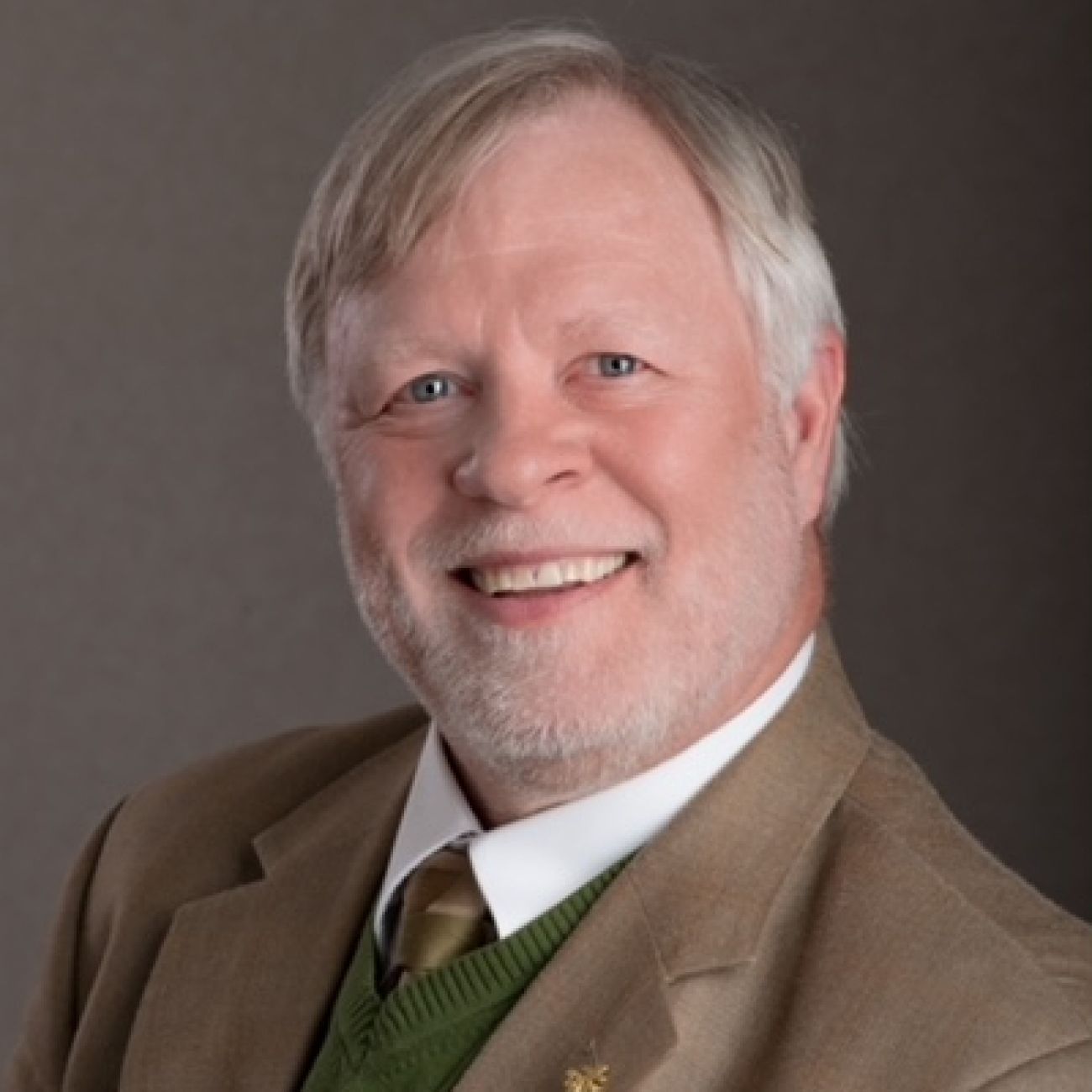
And Narcan’s form as a nasal spray — rather than an injection that is often given out by public health and recovery programs — also could put more Michiganders at ease in using it, he and others said.
The FDA’s decision reinforces the drug’s use as a “a medical intervention that, like a defibrillator, can be used by anyone to save a life,” Tarantowski said.
Narcan, though, doesn’t solve opioid addiction, said Dr. Glenn Dregansky, a long-time doctor and now president of the Michigan Academy of Family Physicians. Recovery happens only when the person is ready and through a lot of hard work.
But Narcan can turn a near-death into a wake-up call, he said.
“What Narcan does is that it keeps you from dying in that moment. You cannot convince a dead person to be clean and sober. Once they die, we’ve lost,” he said.
Cost concerns
Both the FDA and the maker of the approved nasal spray, Gaithersburg, Md.-based Emergent BioSolutions, offered no indication on cost this week, leaving doctors and addiction specialists worried that the move could place the drug out of reach for some.
Under the standing prescription order in Michigan, most Naloxone doses were covered by insurance, said Jalloul of the pharmacists association.
In Michigan, the prescription version of the drug now is usually covered by insurance, or available through GoodRx coverage for about $23. But costs without insurance are not yet known.
And one dose of nasal Narcan isn’t always enough. According to the manufacturer, additional doses should be given at two-to-three minute intervals if a person doesn’t respond.
It may be that — much like Prilosec, which is used to treat heartburn — even though consumers will now be able to get it without a prescription that some will seek one so that it would be covered by insurance, Jalloul said.
“We encourage the manufacturer to make accessibility to the product a priority by making it available as soon as possible and at an affordable price,” FDA Commissioner, Dr. Robert M. Califf, said in a statement.
See what new members are saying about why they donated to Bridge Michigan:
- “In order for this information to be accurate and unbiased it must be underwritten by its readers, not by special interests.” - Larry S.
- “Not many other media sources report on the topics Bridge does.” - Susan B.
- “Your journalism is outstanding and rare these days.” - Mark S.
If you want to ensure the future of nonpartisan, nonprofit Michigan journalism, please become a member today. You, too, will be asked why you donated and maybe we'll feature your quote next time!


